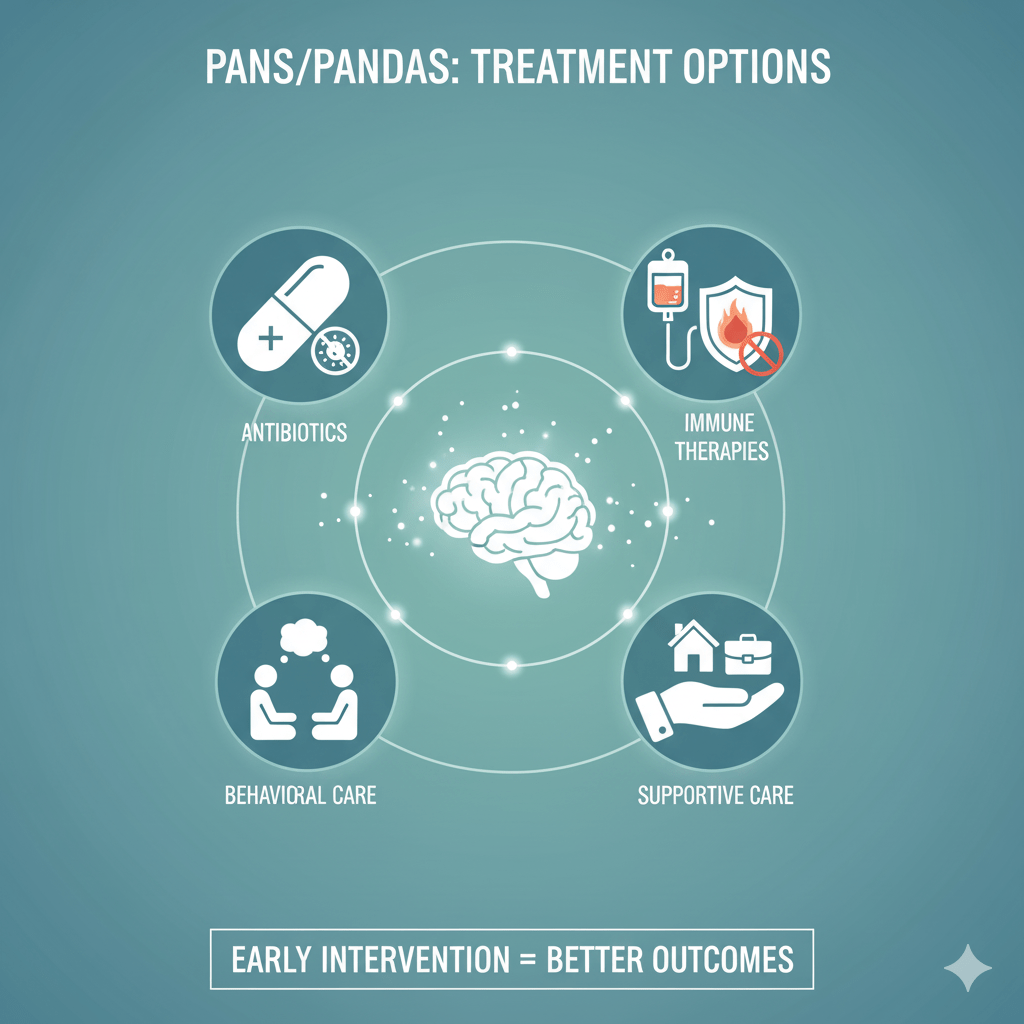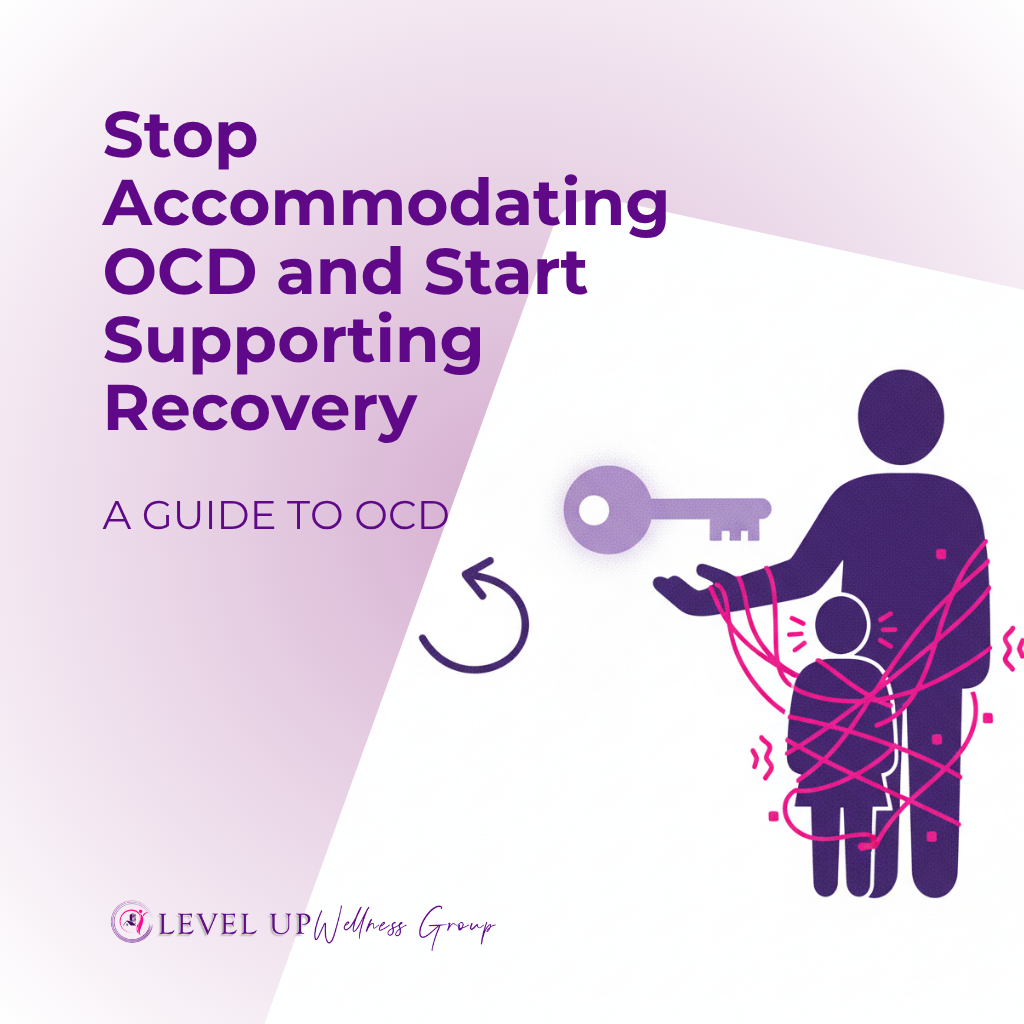
When sudden changes in mood, movement, or behavior appear, it can feel overwhelming. For children, teens, and even adults, these shifts often lead to confusion, misdiagnosis, or years of searching for answers. One group of conditions that explains such abrupt changes is Pediatric Acute-onset Neuropsychiatric Syndrome (PANS) and Pediatric Autoimmune Neuropsychiatric Disorders Associated with Streptococcal infections (PANDAS).
Although the names suggest they are limited to childhood, research and clinical cases show that symptoms can continue into adulthood or appear for the first time later in life. Understanding these conditions and recognizing the signs early is essential for improving treatment outcomes, no matter the age of the patient.
What Are PANS and PANDAS?
PANDAS was first identified in the 1990s and describes a set of symptoms triggered by a strep infection. In these cases, the immune system attacks the infection but mistakenly also targets areas of the brain, particularly the basal ganglia, which control movement and behavior.
PANS was later introduced to describe a broader group of cases. Instead of being limited to strep infections, PANS can be triggered by other infections, environmental exposures, or metabolic stressors.
Symptoms often include:
- Sudden development of obsessive-compulsive disorder (OCD) behaviors.
- New or worsening tics.
- Severe anxiety, depression, or mood instability.
- Cognitive decline, including memory issues or poor concentration.
- Problems with handwriting, motor coordination, or speech.
While these conditions are often diagnosed in children, the reality is that they can affect anyone. Many adults live with undiagnosed PANS or PANDAS after their symptoms were missed in childhood. Others may experience their first episode as teenagers or young adults.
The Science Behind PANS and PANDAS
The leading theory behind these conditions is an autoimmune process. In PANDAS, proteins on strep bacteria resemble those found in the human brain. Antibodies produced to fight the infection mistakenly attack the brain itself, leading to inflammation and sudden neuropsychiatric symptoms.
PANS follows a similar process but can be triggered by different infections or factors. This immune response causes inflammation that disrupts normal neurological functioning.
Key research insights:
- A systematic review published in Neuroscience & Biobehavioral Reviews in 2018 analyzed 12 studies and 240 case reports. It found mixed but promising evidence that treatments such as antibiotics, immunotherapy, and behavioral therapy are most effective when started early.
- According to StatPearls (2025), diagnostic approaches include throat cultures, antibody titers, autoimmune panels, and in some cases, brain imaging.
- Rheumatology experts point out that one of the biggest challenges is the lack of a definitive biomarker, which means diagnosis relies heavily on clinical judgment.
Why Early Diagnosis Matters
Faster and more effective treatment
When symptoms are recognized quickly, interventions such as antibiotics, immunotherapy, or behavioral support have the best chance of success. Delays can lead to longer-lasting symptoms and more complex recovery.
Reducing misdiagnosis
Children are often misdiagnosed with ADHD, Tourette’s, or general anxiety. Adults may be told they have treatment-resistant depression, OCD, or other psychiatric disorders. Early recognition prevents unnecessary treatments that do not address the root cause.
Lower relapse rates
If untreated, PANS and PANDAS often flare up again with future infections or stressors. Early treatment reduces the risk of relapse and protects long-term cognitive and emotional health.
Better support for families and caregivers
Sudden behavioral or emotional changes in children strain families. For adults, these changes can impact work, relationships, and quality of life. Early diagnosis helps build a support system and reduces the stigma of being misunderstood.
How PANS and PANDAS Are Diagnosed
There is currently no single test that confirms these conditions. Instead, diagnosis comes from a combination of medical history, symptom presentation, and supporting laboratory evidence.
Typical diagnostic steps include:
- Reviewing the timeline of symptom onset, especially sudden behavioral or cognitive changes.
- Conducting a physical and neurological examination.
- Testing for infections such as strep, mycoplasma, or viral markers.
- Running antibody titers and autoimmune panels.
- Using brain imaging or psychiatric assessments to rule out other causes.
This process is complex because antibodies can remain elevated after infections clear, and not every patient presents with typical symptoms. For adults, the diagnostic challenge can be even greater since many clinicians do not expect to see PANS or PANDAS beyond childhood.
Treatment Options
Treatment depends on the individual case but is most effective when started as early as possible.
- Antibiotics
For cases linked to bacterial infections, antibiotics are often the first line of treatment. Some patients also benefit from preventive antibiotics to reduce relapses. - Anti-inflammatory and immune therapies
In moderate to severe cases, treatments such as intravenous immunoglobulin (IVIG), plasmapheresis, or short courses of corticosteroids may help. These therapies aim to reduce the autoimmune attack and brain inflammation. - Behavioral and psychiatric care
Cognitive Behavioral Therapy (CBT), exposure-response prevention, and medications such as SSRIs are used to manage OCD and anxiety. These treatments are important for both children and adults, especially when symptoms persist after infections are treated. - Supportive care
For children, schools may provide accommodations like adjusted workloads or extra support. For adults, workplace adjustments and counseling can be critical for managing day-to-day challenges.

The 2018 systematic review concluded that outcomes improve when treatment is initiated early. Delays make recovery more difficult and can result in chronic symptoms.
Long-Term Outlook
The long-term outcomes for PANS and PANDAS vary depending on how quickly the condition is recognized and treated.
- With early diagnosis and treatment, many children and adults experience significant recovery.
- With delayed diagnosis, symptoms can become chronic, leading to long-term psychiatric challenges, academic or work difficulties, and strained relationships.
- Ongoing research is exploring preventive strategies such as vaccines and testing new treatment protocols through clinical trials.
The Role of Families, Patients, and Clinicians
Awareness is one of the most powerful tools in achieving early diagnosis.
- Parents should watch for sudden behavioral or emotional changes in children, particularly following infections.
- Adults experiencing sudden onset of OCD, anxiety, or cognitive issues should advocate for comprehensive evaluation, especially if standard treatments are not helping.
- Clinicians should consider PANS and PANDAS not only in children but also in adolescents and adults, keeping an open mind and working within a multidisciplinary team.
Take the First Step Toward Clarity and Recovery
PANS and PANDAS are complex conditions that can cause sudden and dramatic changes in behavior, mood, and cognition. Although traditionally associated with children, these conditions can persist into adolescence and adulthood, and in some cases, symptoms may first appear later in life.
The most important factor in achieving recovery is timing. Early diagnosis and prompt treatment lead to better outcomes, fewer relapses, and a chance to restore normal functioning. For families and patients, that means seeking answers as soon as symptoms appear. For clinicians, it means staying informed and considering these conditions even in adults.
When it comes to PANS and PANDAS, early recognition is not just helpful. It is the key to effective treatment and long-term health.




